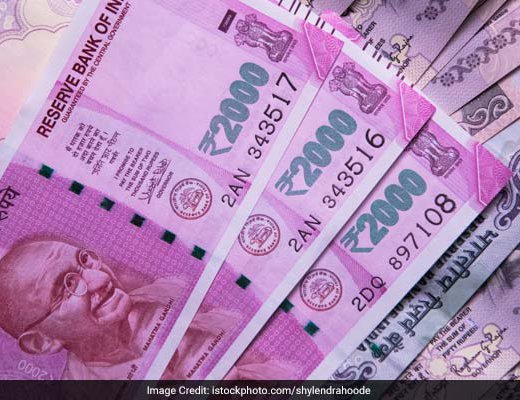
Currencies of any sovereign countries have their own monetary status depending upon the trade and bilateral relations existing between the countries. Some countries allow a particular country’s currency as a means of transactions.
Nepal is no different. Although Nepal allows business transactions in major currencies including US$, Australian $, British Sterling Pound, Chinese Renminbi Indian rupees, Nepal does not accept the currency of Laos, Cambodia, Nigeria or Democratic Republic Congo. Nepal does not even accept currency of any other South Asian country than India.
Those currencies, which Nepal’s central bank does not permit for use as a means of transaction, are merely a value of paper. After the recent decision, even the Indian currency above Rs.100 is no more than a bundle of paper in Nepal. At a time when the status of Indian currency is gaining international recognition with more countries allowing it as a mode for transaction, Nepal’s decision to ban Indian currency will certainly deal a big blow.
Had Nepal government suspended the transactions of Indian currency, it would have legal validity. However, the decision banning Indian currency of above Rs.100 in blanket has no sense.
Over the last few decades, Indian officials have been complaining that large volumes of counterfeit Indian currency was entering India through Nepal-India open border. Indian government’s concern is understandable. However, Nepal’s decision to ban the Indian currency above Rs. 100 as illegal and making it subject to criminal justice is difficult to understand.
Information and Broadcasting Minister Gokul Prasad Baskota has informed that the cabinet has decided to ban Indian currency above Rs.100. He said that the government has informed the public about the new decision.
According to the current local laws, carrying or possessing all foreign currencies in Nepal is illegal. However, a foreigner can carry the amount he or she declares at the custom point before entering Nepal.
The Nepal government has banned the use of Indian currency notes of Rs 2000, Rs 500 and Rs 200. The government has asked the citizens to abstain from keeping or carrying Indian currencies higher than Rs 100 which cease to be legal tender.
Lawyers argue that Nepal cannot declare the currency illegal. “Of course the government can call currency transactions illegal. How can we say the other country’s currency is illegal?” asked a senior lawyer on condition of anonymity. “Whoever has taken this decisions, under whoever’s pressure, the decision not only exposes Nepal’s own inability to check fake currency as well as a big blow to neighboring India, which is pressing to make its own currency means for international transaction.”
He argued that Nepal cannot ban Indian currency and demonetize but Nepal can restrict the transaction of Indian currency, with deposit of over 60 million Indian Currency of demonetized Rs.500 and Rs.1000 at Nepal Rastra Bank
However, from now on, the Indian currency of Rs.2000, Rs.1000 and Rs.500 is no different from Cambodian, Laotian or Nigerian currency.
Effect On Indian Tourists
At a time when Nepal is promoting Indian tourists, Nepal government’s decision to ban Indian currency will badly affect Indian tourist arrival in Nepal.
As many as 2,60,124 Indian tourists have visited Nepal in the last 10 months, taking the number of tourists visiting the neighboring country to a whopping one million.
"Whenever tourists from India visit Nepal, they want to spend money here. Nepal government should have looked into all the aspects before making such a decision that will affect both tourism and economic growth of Nepal. This will only curtail the growth of Nepal as people from India will refuse to come to the country."
He further added that both the Indian government and the Nepal government talk about the smooth relationship they share with each other, but decisions like this can have a counter effect on both the countries.
The decision was taken in a cabinet meeting on December 10 following which a notice was issued asking the Nepalese citizens or other citizens not to keep or transact in those banknotes. With this decision, Nepali citizens are only allowed to carry or make transactions using Rs 100 Indian banknotes.
Nepal’s Own Problem
Nepal has been pressing India to exchange millions of dollars held in Nepal in demonetized Indian bank notes in visits aimed at improving ties between the two nations.
Nepal and India have yet to agree on how to exchange old Indian bank notes estimated to be worth Rs. 950 crore ($146 million) held by individuals and informal sectors after Prime Minister Narendra Modi's announcement in 2016 to ban 500 and 1,000 rupee notes.
The demonetization decision was aimed at flushing out unaccounted wealth and hit the finances of terrorists suspected of using fake currency to fund operations. But it also caught countries such as Nepal and Bhutan, where the Indian currency is widely used, off-guard.
Prime Minister K.P Sharma Oli has been urging Indian leaders to take up the issue of Indian currency. He has been saying that the Indian demonetization has hurt Nepali nationals. However, nothing came out.
India is Nepal's largest trade partner and the supplier of the bulk of consumer goods. Indian currency is widely used by businesses and individuals who keep their savings at homes in Indian bank notes.
Central Nepal Rastra Bank (NRB) officials say the Reserve Bank of India (RBI) verbally agreed to allow every Nepali national to exchange up to 4,500 rupees worth of scrapped Indian bank notes earlier. "But nothing has been communicated to Nepal Rashtra Bank.”
A senior government official, with direct knowledge of the RBI's views, said the central bank was unable to exchange the old currency notes in Nepal or any other country because there was no such provision made in the rules that the government issued at the time of demonetization.
With such a big money lying unused in Nepal, the government justifies the decision. However, the decision will have a far reaching consequence in bilateral trade, tourism and livelihood of the people living on both the sides of border. Instead of banning the currency all out, Nepal would have chosen the middle way limiting the amount for carrying.
- MELAMCHI WATER SUPPLY: No Interruption During Monsoon
- Jun 25, 2025
- KOREAN RETURNEES: Successful Integration
- Jun 25, 2025
- UPPER TRISHULI-1: Engaging With Local
- Jun 25, 2025
- IME GROUP: Twenty Five Years Of Journey
- Jun 24, 2025
- NEPAL’S AIR POLLUTION: A Growing Health Concern
- Jun 24, 2025















